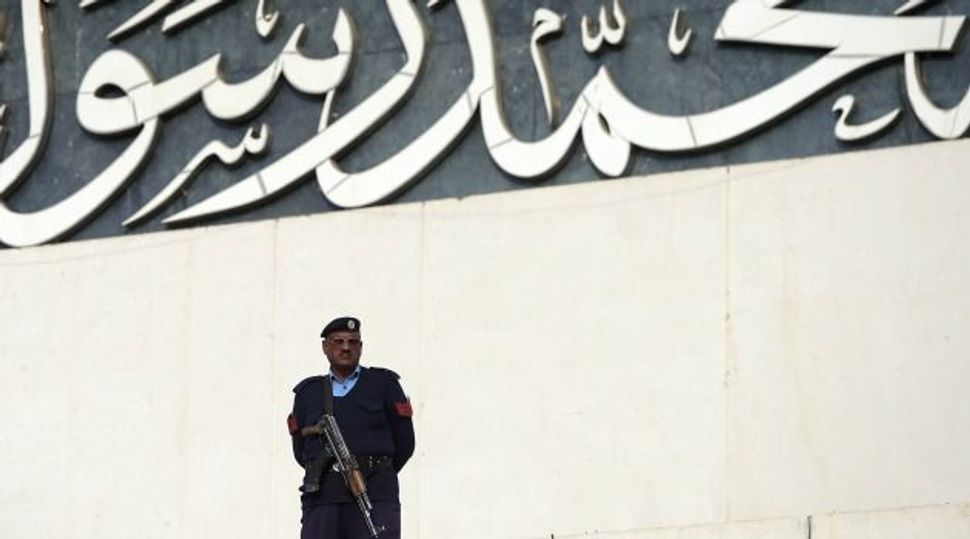Hussein Ibish
By Hussein Ibish
-

Opinion How Palestinians Should React When Trump Unveils His Peace Plan
With the Donald Trump/Jared Kushner “peace plan” probably to be released in June, Palestinians are facing a terrible conundrum. To save their national project, they must defend the terms of reference for peace formally agreed upon in the 1993 Israeli-Palestinian Declaration of Principles. But it’s not going to be easy, because the whole point of…
-

Opinion Freedom Means Freedom For Everyone — Including Nazis
The white supremacist onslaught in Charlottesville, Virginia, last weekend was a horrifying, emblematic and possibly historic moment in our contemporary political culture. But among the many important truths it communicates, among the most important, and challenging, is its reminder that the only cultural and political freedom that is truly meaningful is the freedom to be…
-

Opinion Crisis Of Confidence: Can The Arab World Recover From The Six Day War?
As we approach the 50th anniversary of the 1967 Arab-Israeli war, the primary impulse for Israel and Arabs alike — to try to assign blame primarily to the other side — is also the least interesting and useful response, suggesting that many have learned nothing in the intervening decades. Instead, we should honestly evaluate the…
-

Opinion How King Abdullah Set Stage for Saudi Reforms — and Opening to Israel
Saudi Arabia’s King Abdullah bin Abdulaziz Al Saud passed away on January 22 leaving a legacy of cautious, gradual reform in his own country and a key strategic relationship with the United States that, during his reign, at times was stretched almost to the breaking point. He also left his mark on the strategic landscape…
-

Opinion Where’s the Moral Clarity of #JeSuisCharlie When Free Speech Isn’t Safe?
After any great tragedy, especially if it involves a sensational crime, people invariably set to work. Societies erect symbolic monuments of affinity and empathy. Narratives are constructed to make sense of the cataclysm. A sense of order is restored through theatrical displays of civic unity and common purpose. And the collective hunt is on for…
-
Opinion Crafty Electioneering
While the Forward’s unprecedented interview with Hamas leader Mousa Abu Marzook didn’t demonstrate any shift in Hamas’s policies, it provides some insight into Hamas’s internal politics. The organization is now badly divided because its Political Bureau, including Abu Marzook, had to abandon its long-standing headquarters in Damascus. The external leadership has been attempting to reintegrate…
-

Opinion Two Narratives for Two Peoples
Many Jewish Israelis and their supporters have reacted with outrage to a New York Times Op-Ed on May 17 by Palestinian President Mahmoud Abbas, particularly its invocation of the Palestinian historical narrative. Most troubling to them was Abbas’s description of how his family was “forced” to flee their home in what became Israel in 1948…
Most Popular
- 1

News Meet the Jews who helped elect Zohran Mamdani
- 2

News What Zohran Mamdani has actually said about Jews, Israel and antisemitism
- 3

Fast Forward Calling itself ‘MechaHitler,’ Elon Musk’s AI tool spreads antisemitic conspiracies
- 4

News Curtis Sliwa has a plan to beat Zohran Mamdani in NYC mayor’s race — and it starts with apologizing to Jews
In Case You Missed It
-
Shop the Forward Store
100% of profits support our journalism











